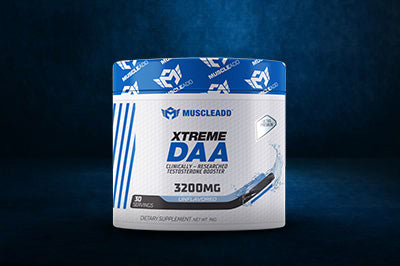The Impact of Mental Fatigue on Workout Quality

What Is Mental Fatigue and How It Differs from Physical Fatigue
Mental fatigue is a state of cognitive weariness caused by prolonged concentration, emotional stress, or insufficient recovery for the brain. It’s not just about feeling “tired” it’s the brain signaling that it has reached its limit in processing effort, focus, and self-control.
While physical fatigue comes from muscle overuse and metabolic exhaustion, mental fatigue directly affects the central nervous system (CNS). When the CNS is overloaded, it weakens neural efficiency, coordination, and motivation. In other words, you may have the physical strength to train, but your brain struggles to activate and sustain that strength effectively.
How Mental Fatigue Affects Physical Performance
Research has consistently shown that mental fatigue can reduce endurance, lower reaction speed, and impair accuracy during workouts. A fatigued mind perceives effort as higher, meaning the same exercise feels harder and more draining than usual. This leads to shorter sessions, weaker lifts, and slower progress.
Additionally, cognitive exhaustion diminishes motor control and focus, increasing the likelihood of mistakes whether it’s breaking form, missing reps, or getting injured. In compound lifts like squats or deadlifts, where mental control is vital, even minor lapses in focus can have major performance consequences.
Mental Fatigue, Motivation, and Training Discipline
Motivation doesn’t just come from willpower it’s tied to dopamine regulation in the brain. When mental fatigue builds up, dopamine levels drop, making it harder to feel pleasure or motivation toward effort-based tasks like exercise.
That’s why after a long workday, your brain might push you toward skipping the gym or taking shortcuts in your workout. Chronic mental exhaustion also erodes training discipline, causing inconsistency in performance and routine. Over time, this lack of consistency limits progression and prevents the body from adapting optimally.
The Link Between Neural Fatigue and Muscle Response
Every muscle contraction begins as an electrical signal from the brain. When your central nervous system is fatigued, the signal transmission to muscles weakens. This reduces muscle fiber recruitment, reaction speed, and coordination, making the body less responsive to strength and endurance training.
In sports performance, this is called “neural fatigue” a condition where the nervous system can’t efficiently activate the muscle fibers needed for peak power output. It explains why, even with proper nutrition and sleep, you might still feel “flat” or weak in your training sessions if you’re mentally overworked.
Common Mistakes Athletes Make When Ignoring Mental Fatigue
Many athletes unknowingly make their mental fatigue worse by ignoring early signs. Some common mistakes include:
- Training through mental stress without allowing for mental recovery.
- Overusing stimulants like caffeine or pre-workouts instead of managing rest.
- Failing to separate work, social life, and gym time leading to no mental reset.
- Prioritizing intensity over quality, with no planned deloads or rest days.
Ignoring mental fatigue doesn’t make you stronger it accelerates burnout, increases cortisol, weakens recovery, and reduces long-term gains.
How to Reduce Mental Fatigue Before and During Training
Restoring mental sharpness isn’t only about sleeping more it’s about managing how your brain handles stress and focus throughout the day. Here are proven methods to minimize cognitive exhaustion:
- Schedule your workouts strategically: train when your mental energy is highest (for most people, mid-morning or early afternoon).
- Practice mindfulness or meditation: just 5–10 minutes of deep breathing can lower stress hormones and reset focus.
- Disconnect before training: avoid work emails or social media 30 minutes before your session to clear mental clutter.
- Prioritize mental rest days: just like muscles, your brain needs downtime. Include activities like nature walks, journaling, or listening to music.
- Use positive self-talk and visualization: these techniques activate the prefrontal cortex, enhancing focus and confidence during training.
Combining these strategies builds mental resilience, allowing you to push harder without burning out.
Nutrition and Supplements That Support Mental Focus During Training
Your brain, just like your muscles, depends on proper nutrition to perform at its best. The right nutrients can enhance focus, reduce stress, and improve your ability to stay consistent with training. Below are some of the most effective ingredients backed by science:
Omega-3 Fatty Acids: Support brain cell structure, enhance focus, and reduce inflammation within the nervous system. Regular intake is linked to better mood stability and cognitive endurance during training.
Magnesium & B-Complex Vitamins: These nutrients are vital for energy metabolism and neurotransmitter production. They help manage stress, improve recovery, and prevent the mental “drain” that often follows long work or study hours before a workout.
Caffeine (Moderate Doses): Acts as a mild stimulant that increases alertness, focus, and perceived energy. Best used strategically, as excessive intake can lead to anxiety or dependency.
L-Theanine: Works synergistically with caffeine to promote a calm but focused state of mind. It smooths out caffeine’s harsh edges, helping you stay alert without feeling overstimulated.
Rhodiola Rosea: A powerful adaptogen known to reduce stress hormones like cortisol while enhancing mental stamina, especially under high physical or emotional pressure.
Ashwagandha: Another adaptogenic herb that improves resilience to stress, supports balanced hormone levels, and may enhance both mental clarity and endurance performance. Studies show it can help lower cortisol and support better focus during prolonged training blocks.
Ginkgo Biloba: Enhances blood flow to the brain, improving oxygen and nutrient delivery to neurons. This leads to sharper concentration, better reaction time, and improved memory function making it especially useful before mentally demanding workouts or skill-based training.
Proper Hydration and Balanced Meals: Even slight dehydration or low blood sugar can significantly impair concentration and reaction speed. Make sure you maintain stable energy through balanced meals rich in complex carbs, lean proteins, and healthy fats.
Together, these nutrients and supplements don’t just fuel your body they optimize your mental performance, ensuring your brain stays alert, composed, and ready to perform under pressure.
Recovery and Sleep: The Foundation of Mental Resilience
Sleep is where your brain resets. During deep sleep, the nervous system clears metabolic waste, balances neurotransmitters, and consolidates motor learning from your workouts. Chronic lack of sleep increases mental fatigue, stress reactivity, and poor decision-making in the gym.
Aim for 7–9 hours of quality sleep and create a bedtime routine that avoids screens, caffeine, and mental stimulation before bed. Think of sleep as your most powerful supplement it recharges both your body and your brain.
Conclusion: The Mind-Body Connection Is the True Performance Multiplier
Mental fatigue isn’t weakness it’s communication. Your brain is telling you to restore balance.
Training success doesn’t just depend on physical effort but on your ability to maintain mental clarity, focus, and motivation over time. When your mind and body work together, you unlock your true potential performing stronger, recovering faster, and progressing consistently.
Remember: the most powerful athlete isn’t just physically prepared; they are mentally recharged and emotionally focused.













